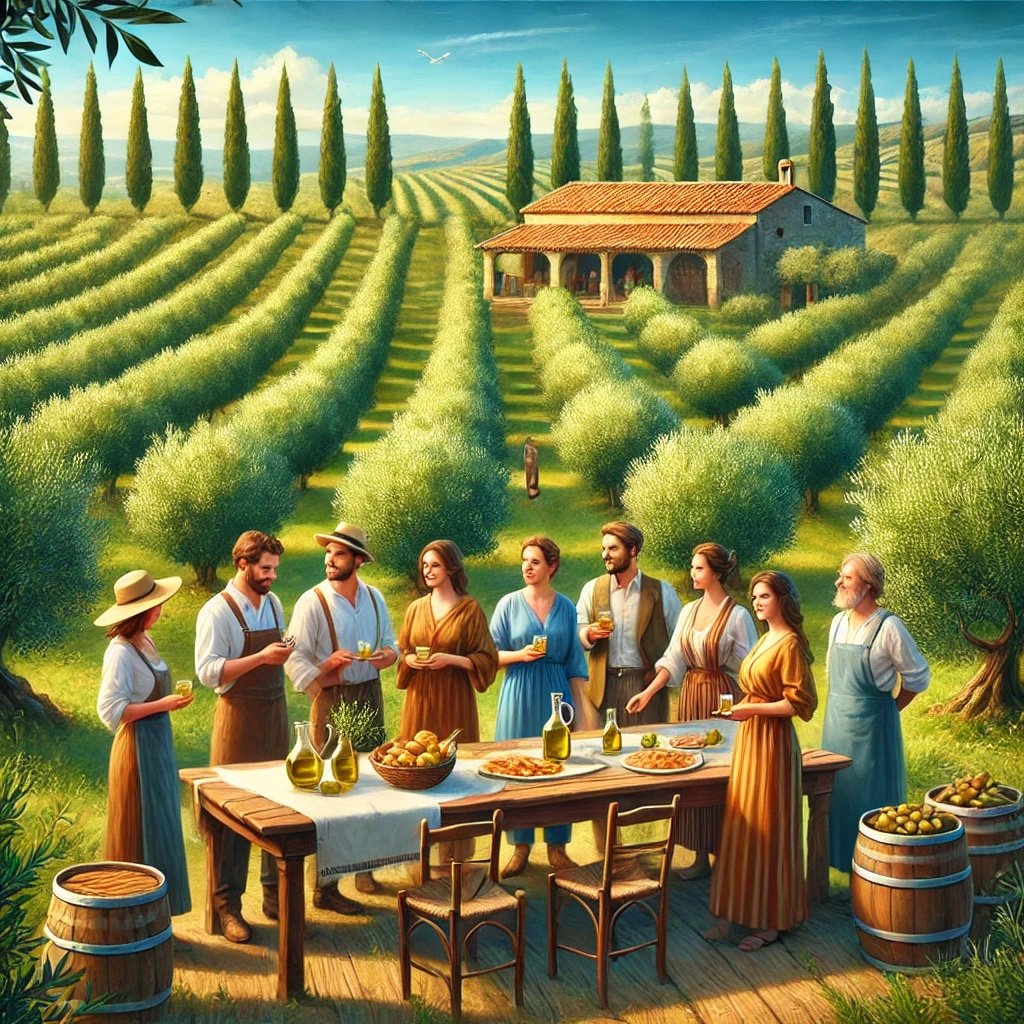Nestled in the sun-drenched hills of southern Spain, Andalusia boasts a landscape defined by its endless stretches of olive groves. These silvery-green seas of olive trees not only shape the region’s scenery but also form the backbone of its cultural and economic life. The olive harvest, known locally as the recolección de aceitunas, is more than just an agricultural activity; it is a deeply rooted tradition that weaves together history, community, and identity in this picturesque region.
A Landscape of Olives
Andalusia is the largest producer of olive oil in the world, accounting for nearly a third of global production. Its unique climate, with long, hot summers and mild winters, creates the perfect conditions for olive cultivation. Provinces such as Jaén, Córdoba, and Granada are particularly famous for their extensive olive groves, with Jaén often referred to as the “World Capital of Olive Oil.”
The region is home to over 300 million olive trees, a testament to the enduring importance of this crop. The sight of gnarled tree trunks, some centuries old, standing firm against time is a symbol of resilience and continuity in Andalusian life. These trees are not just agricultural assets but living connections to the region’s past, as olives have been cultivated in the area since ancient times.
The Season of Harvest
The olive harvest typically begins in late autumn and extends into the winter months, usually from November to January. This is a period of intense activity across Andalusia, as families, seasonal workers, and entire communities come together to gather the fruit. The timing of the harvest is crucial and depends on the desired type of olive oil. For high-quality extra virgin olive oil, the olives are often picked earlier when they are still green, producing a more robust and aromatic oil.
Traditionally, olives were handpicked using ladders and baskets, a labor-intensive process that required patience and precision. While modern machinery has significantly streamlined the process, many smaller farms still rely on traditional methods, preserving the artisanal nature of their oil production. Workers use long poles to shake the branches, causing the olives to fall onto large nets spread beneath the trees. The rhythmic tapping of poles and the rustle of falling olives create a unique soundtrack that accompanies the harvest season.
The Communal Spirit
For many Andalusians, the olive harvest is more than just work; it is a communal ritual that fosters a sense of belonging and shared purpose. Families often come together to harvest their trees, turning the process into a social occasion filled with laughter, storytelling, and the passing down of traditions. Seasonal workers, many of whom travel from other regions or even abroad, join in, adding to the diverse tapestry of people involved in the harvest.
Meals during the harvest are often communal, with workers gathering around large outdoor tables to share hearty dishes like gazpacho, migas, and roasted meats, accompanied by freshly baked bread dipped in olive oil. These meals are not just about sustenance but also celebration—a way to honor the hard work and the fruits of their labor.
From Fruit to Liquid Gold
Once harvested, the olives are transported to local mills, or almazaras, where the process of turning them into olive oil begins. The journey from fruit to liquid gold is a meticulous one, requiring careful attention to detail at every step.
The olives are first cleaned to remove any dirt or leaves, then crushed into a paste using large stone wheels or modern steel grinders. This paste is then pressed to extract the oil, which is subsequently filtered and stored. The resulting product is graded based on its quality, with extra virgin olive oil being the highest grade. Its rich, fruity flavor and low acidity make it a prized ingredient in kitchens around the world.
Andalusian olive oil is protected by several Denominations of Origin, such as Sierra de Segura and Baena, which ensure that the oil meets strict quality standards and retains its unique regional character. These designations are a point of pride for local producers and a mark of authenticity for consumers.
Economic Impact
The olive harvest is a cornerstone of Andalusia’s economy, providing livelihoods for thousands of families and generating significant revenue. Olive oil production accounts for a substantial portion of the region’s agricultural output and exports. Jaén alone produces more olive oil than Italy and Greece combined, underscoring Andalusia’s global dominance in this sector.
Beyond its economic impact, the olive harvest sustains rural communities, many of which depend on the annual cycle of cultivation and production. It also drives tourism, as visitors from around the world come to experience olive oil tastings, visit historic mills, and learn about the cultural significance of this ancient crop.
A Cultural Heritage
The olive harvest is deeply intertwined with Andalusia’s cultural heritage, inspiring art, music, and literature throughout the centuries. Folk songs and flamenco melodies often evoke the rhythms of the harvest and the connection between the land and its people. Festivals celebrating the olive harvest are common, with events such as the Fiesta del Aceite Fresco in Jaén drawing crowds to sample freshly pressed oils and partake in traditional dances and games.
In recent years, the cultural significance of olive oil has been further highlighted through culinary tourism. Visitors can participate in guided tours of olive groves, attend workshops on traditional oil-making techniques, and enjoy gourmet experiences that showcase the versatility of olive oil in Andalusian cuisine.
Sustainability and Challenges
Despite its enduring importance, the olive harvest in Andalusia faces several challenges. Climate change poses a significant threat, with rising temperatures and irregular rainfall patterns affecting olive yields. Farmers are increasingly adopting sustainable practices, such as organic farming and water-efficient irrigation methods, to mitigate these impacts and ensure the long-term viability of their crops.
Another challenge is the global olive oil market, where fluctuating prices and competition from other producing countries create uncertainty for Andalusian farmers. Initiatives to promote the region’s olive oil as a premium product have helped bolster its reputation and secure its place on the international stage.
A Way of Life
For Andalusians, the olive harvest is not just an agricultural activity; it is a way of life that connects them to their land, their history, and each other. It embodies the values of hard work, community, and respect for nature, offering a glimpse into a world where tradition and modernity coexist.
As the sun sets over the olive groves, casting golden hues across the landscape, it is easy to see why this ancient tradition continues to hold such a special place in Andalusian hearts. The olive harvest is more than just a season; it is a celebration of life, a testament to resilience, and a reminder of the deep bonds between people and the land they call home.








